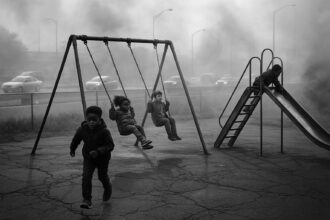French President Emmanuel Macron has articulated the significance of a collective stance against Russia and the possibility of Western military presence in Ukraine, amidst a broader discourse on France’s approach to the conflict. A rendezvous with German and Polish leaders underscores European unity, while Poland’s diplomatic reboot under Prime Minister Donald Tusk marks a significant strategic shift.
French President Emmanuel Macron has recently voiced his opinion on the ongoing conflict in Ukraine, stressing the necessity of presenting a strong front against Russia and not dismissing the potential involvement of Western troops in Ukraine, although he believes the current circumstances do not warrant such action. During a televised interview, Macron labelled the war as crucial for both France and Europe’s future, stating that any decision by France to deploy troops would be in response to Moscow’s actions. His comments underline the broader discussion on France’s strategy towards Ukraine, following a symbolic parliamentary endorsement of a ten-year security agreement with the country.
In a move to demonstrate solidarity and coordinate further support for Ukraine, Macron is scheduled to meet with German Chancellor Olaf Scholz and Polish Prime Minister Donald Tusk in Berlin. This meeting is part of the collective efforts to address the impacts of the Russian aggression in Ukraine, highlighting the collaborative stance among European leaders on the crisis.
Meanwhile, Poland is undergoing significant shifts in its diplomatic landscape, with the new government recalling 50 ambassadors appointed under the previous right-wing administration. Prime Minister Donald Tusk clarified that this decision aims to bolster Poland’s foreign policy effectiveness amidst the current geopolitical challenges, particularly concerning the situation in Ukraine. The move, which is not framed as a punitive action, is part of a broader strategy to align Poland’s diplomatic corps with the current administration’s objectives.
The recall of these envoys, as Poland navigates its diplomatic challenges and strengthens its position on the global stage, signals a significant realignment under Tusk’s leadership. This development also hints at potential friction with President Andrzej Duda, who is associated with the former governing party. These changes in Poland’s diplomatic roster underscore the country’s commitment to playing a proactive role in international affairs, especially in light of the ongoing conflict in Ukraine.













